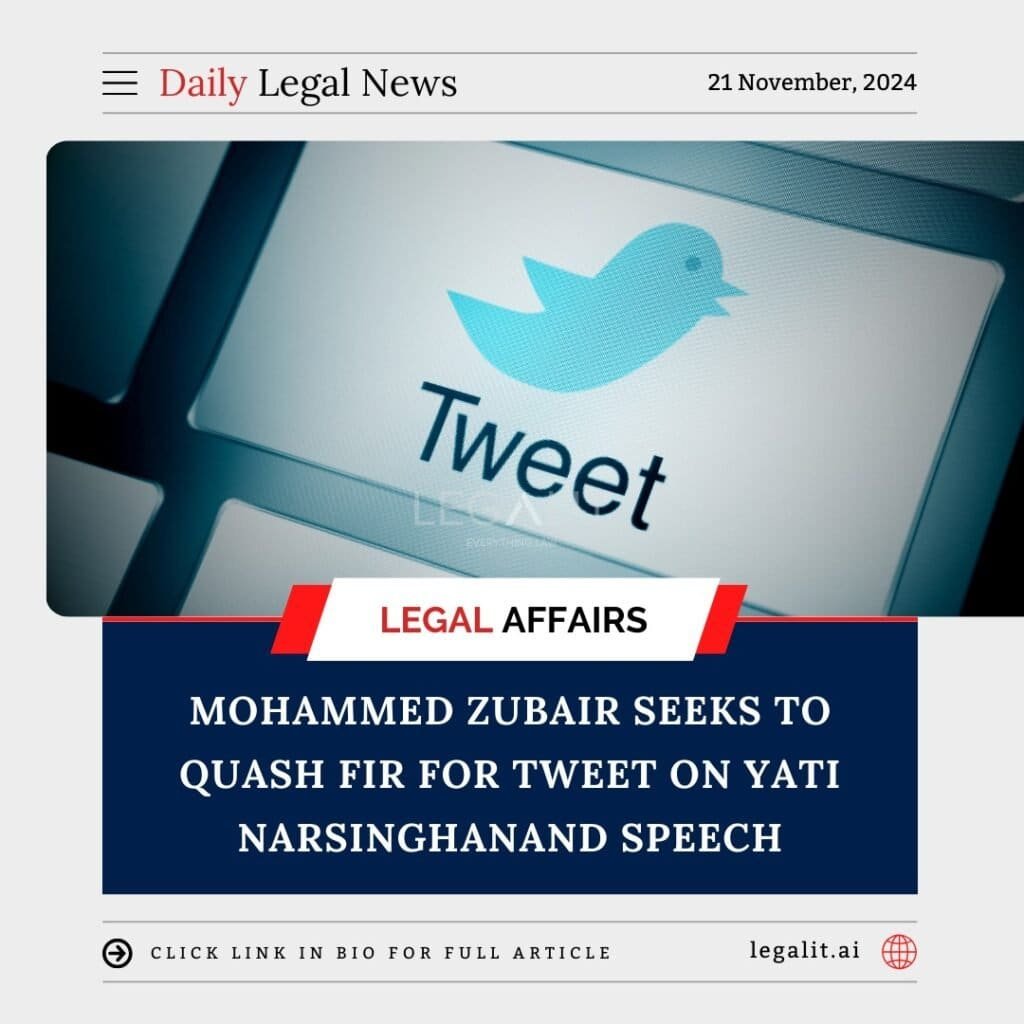
Journalist Mohammed Zubair has approached the Allahabad High Court seeking to quash an FIR filed against him for a tweet he posted regarding a speech by Yati Narsinghanand. Zubair’s legal team argues that the FIR is baseless and that his tweet did not promote any form of violence or hate speech.
Background:
The case revolves around a tweet posted by Zubair, which commented on a speech made by Yati Narsinghanand, a controversial figure known for his provocative statements. The tweet, according to the police, allegedly sought to incite hatred and was intended to disturb communal harmony. As a result, an FIR was lodged against Zubair under various sections of the Indian Penal Code and the Information Technology Act.
Court’s Rationale:
Zubair’s legal counsel contends that his tweet was a form of expression protected under the Constitution, and that no criminal intent was involved. The defense argued that the FIR infringes upon the right to free speech and was an attempt to silence dissenting voices. In the plea, Zubair has requested the Allahabad High Court to strike down the FIR on grounds of being politically motivated and an abuse of the legal process.
Existing Measures:
The case highlights the ongoing debate surrounding free speech and the legal consequences of expressing opinions on social media. The High Court will consider whether the FIR against Zubair constitutes a violation of his fundamental rights to freedom of speech and expression, or whether it was warranted under existing laws pertaining to hate speech and public order.
Conclusion:
The Allahabad High Court’s decision in this matter could set an important precedent regarding the limits of free speech in the context of social media posts and comments on public figures. Zubair’s petition underscores the growing concerns over the use of legal provisions to silence or target individuals for their expressions, particularly in politically sensitive matters. The outcome will have significant implications for how similar cases are handled in the future.